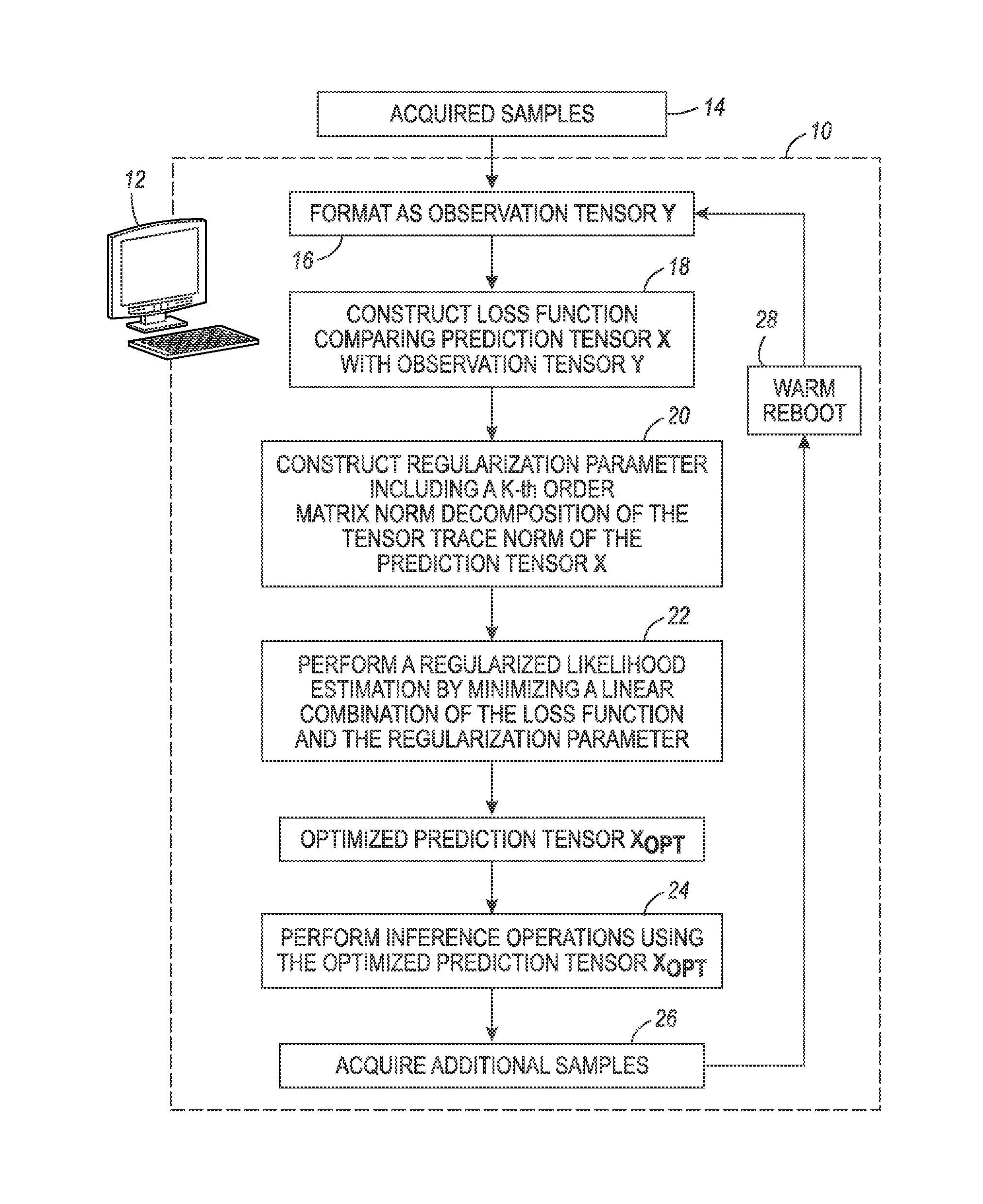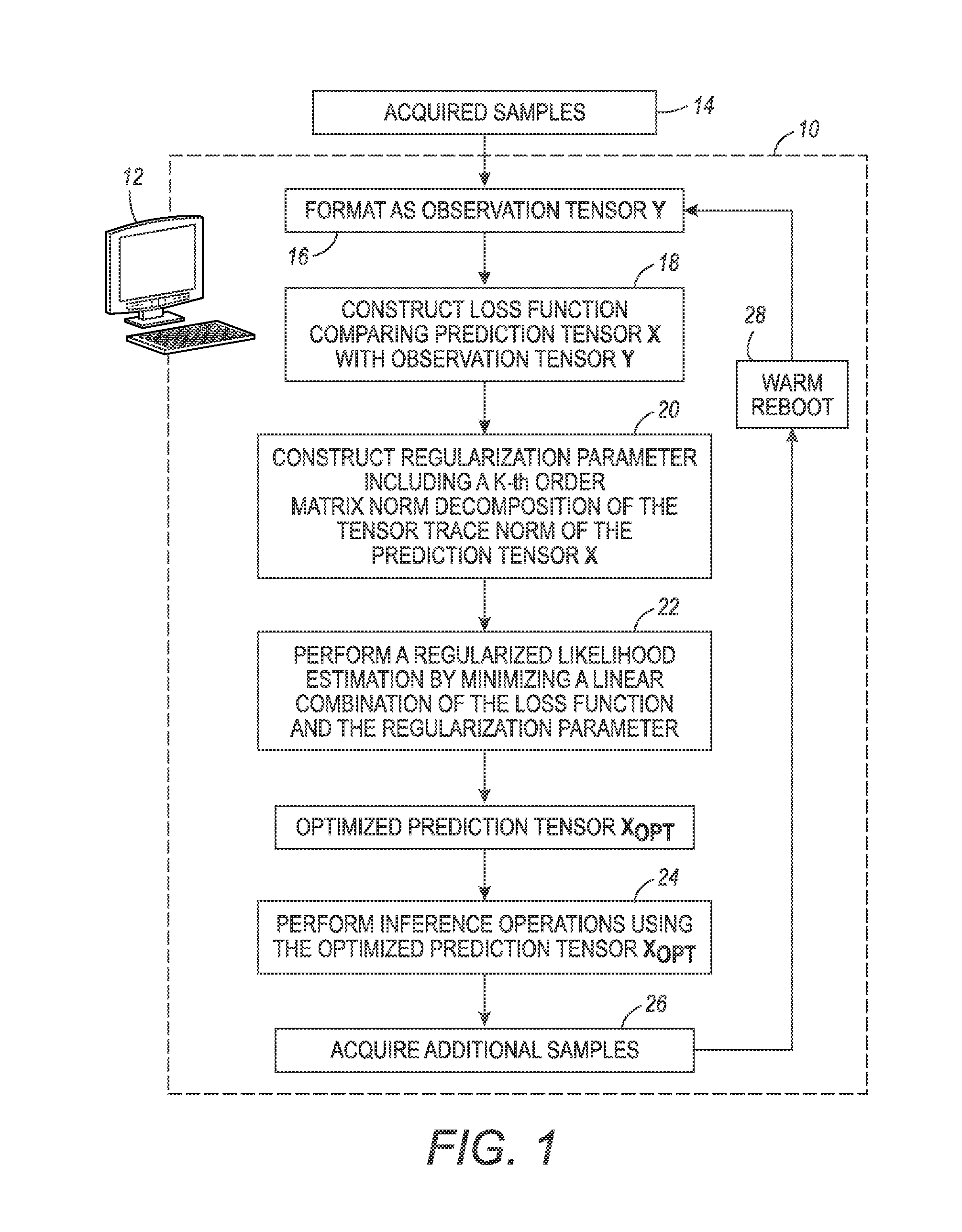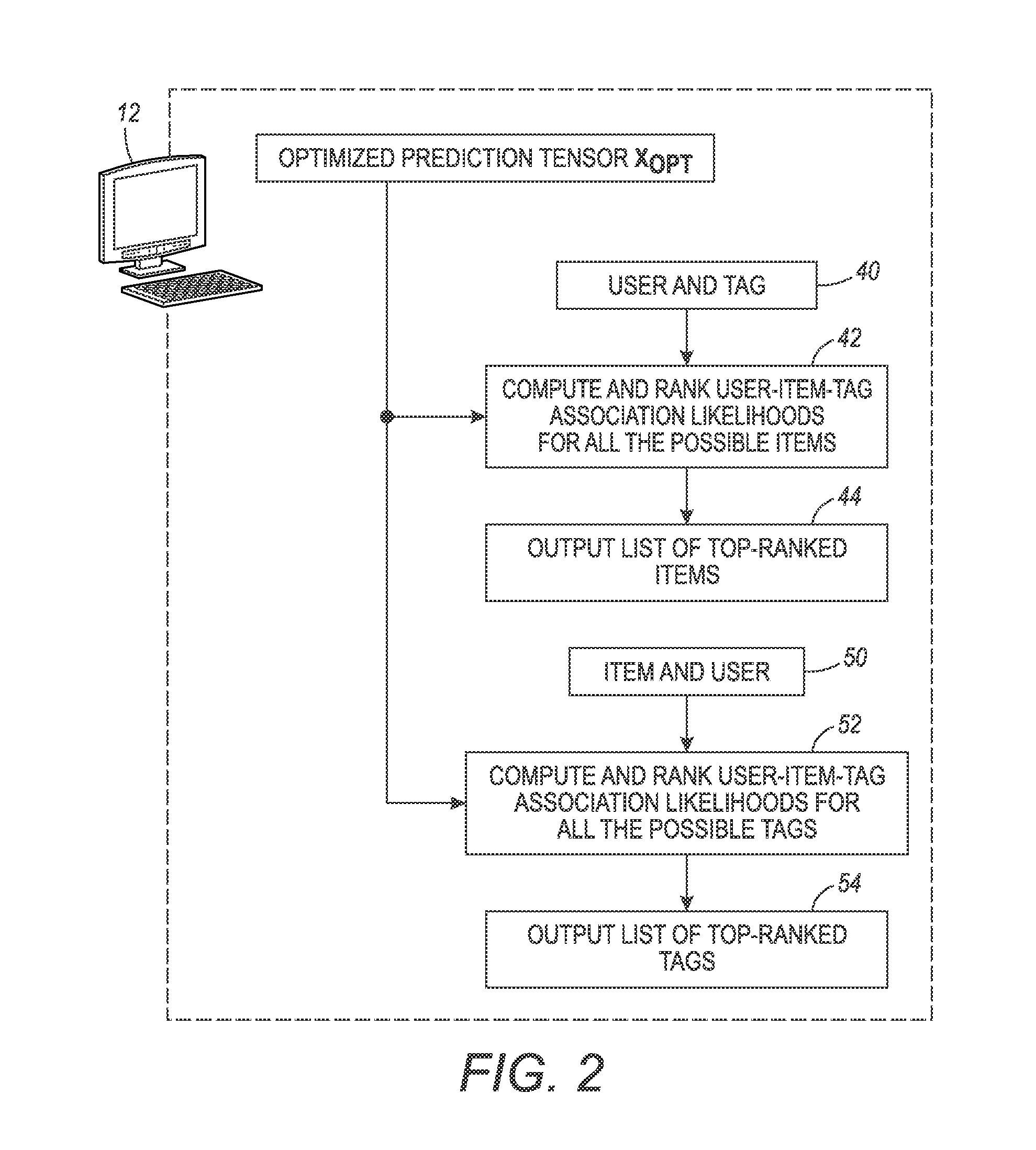Tensor trace norm and inference systems and recommender systems using same
a technology of inference system and tensor trace, applied in the direction of knowledge representation, instruments, computing models, etc., can solve the problems of affecting likelihood estimation, prohibiting exhaustively testing all possible ink formulations, and arising recommendations
- Summary
- Abstract
- Description
- Claims
- Application Information
AI Technical Summary
Benefits of technology
Problems solved by technology
Method used
Image
Examples
Embodiment Construction
[0014]With reference to FIG. 1, an inference system 10 is implemented by a computer or other electronic data processing device 12 that includes a processor (e.g., microprocessor, optionally multi-core) and data storage and that executes instructions to perform operations including: formatting acquired samples 14 as an observation tensor Y in an operation 16; constructing a loss function in an operation 18; constructing a regularization parameter in an operation 20; performing a regularized likelihood optimization in an operation 22 to optimize a prediction tensor X in order to generate an optimized prediction tensor Xopt; performing inference operations 24 using the optimized prediction tensor Xopt; and optionally performing periodic inference system updates by collecting additional samples in an operation 26 and performing a reboot 28 entailing repeating the operations 16, 18, 20, 22 to update the optimized prediction tensor X. The instructions that are executed by the computer or ...
PUM
 Login to View More
Login to View More Abstract
Description
Claims
Application Information
 Login to View More
Login to View More - R&D
- Intellectual Property
- Life Sciences
- Materials
- Tech Scout
- Unparalleled Data Quality
- Higher Quality Content
- 60% Fewer Hallucinations
Browse by: Latest US Patents, China's latest patents, Technical Efficacy Thesaurus, Application Domain, Technology Topic, Popular Technical Reports.
© 2025 PatSnap. All rights reserved.Legal|Privacy policy|Modern Slavery Act Transparency Statement|Sitemap|About US| Contact US: help@patsnap.com



